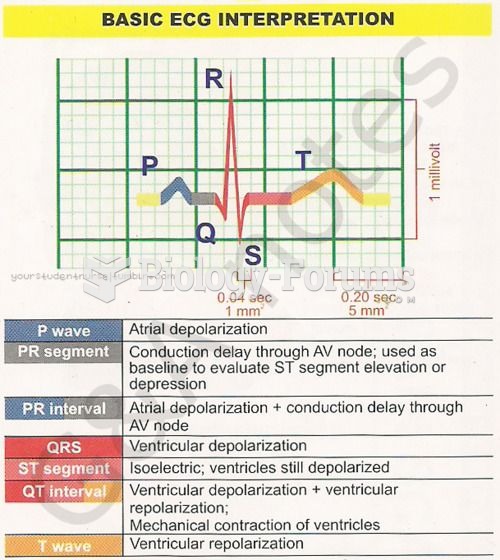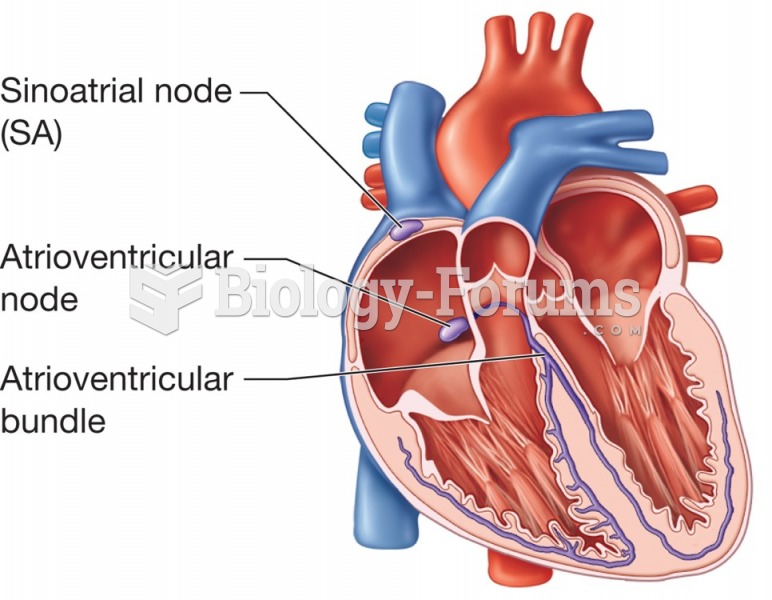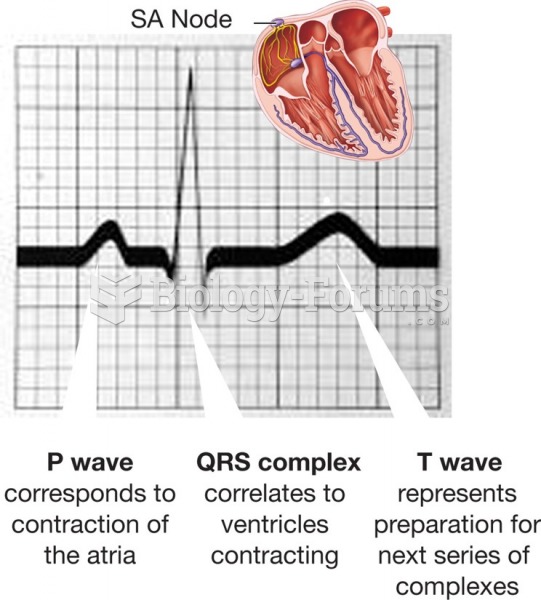|
|
|
The U.S. Preventive Services Task Force recommends that all women age 65 years of age or older should be screened with bone densitometry.
The cure for trichomoniasis is easy as long as the patient does not drink alcoholic beverages for 24 hours. Just a single dose of medication is needed to rid the body of the disease. However, without proper precautions, an individual may contract the disease repeatedly. In fact, most people develop trichomoniasis again within three months of their last treatment.
For pediatric patients, intravenous fluids are the most commonly cited products involved in medication errors that are reported to the USP.
Thyroid conditions may make getting pregnant impossible.
Women are 50% to 75% more likely than men to experience an adverse drug reaction.







